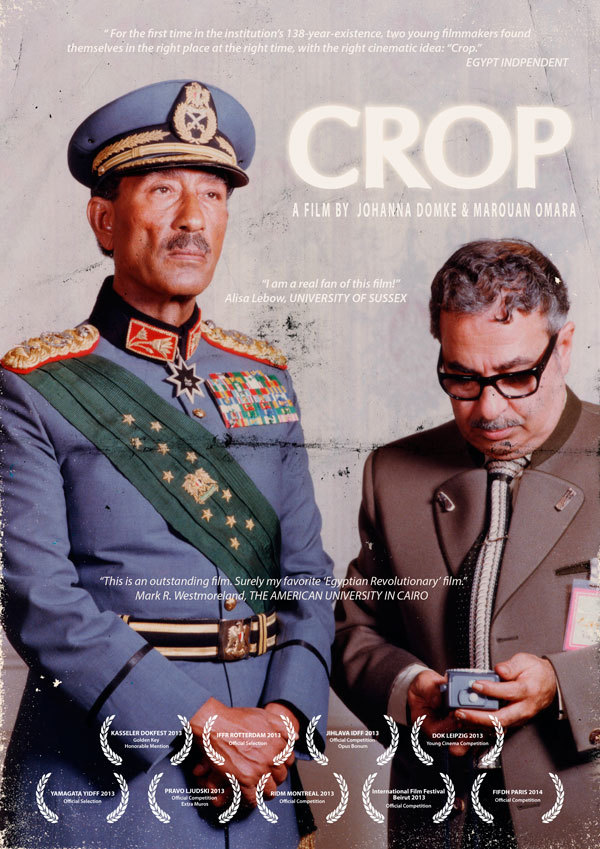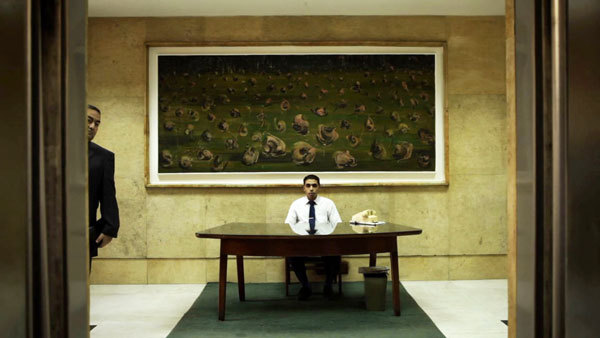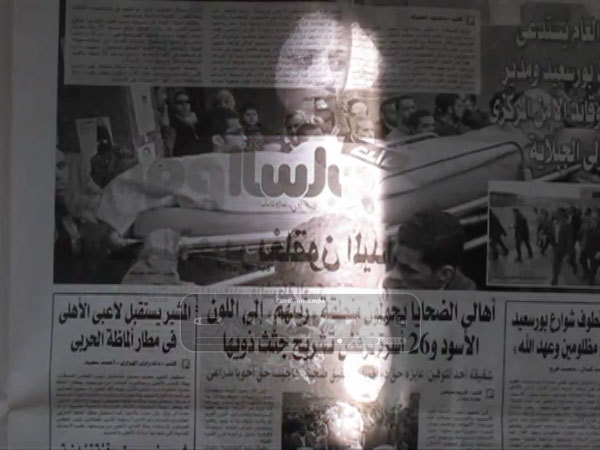


riesa efau. Kultur Forum Dresden in collaboration with Directors Lounge presents Cairo Times and Crop by Johanna Domke and Marouan Omara
March 30, 2016, 8 – 10 pm at Motorenhalle Dresden, Wachsbleichstraße 4a, 01067 Dresden
Crop is an astounding video piece about a state-owned newspaper building in the centre of Cairo. Filmed in 2012 shortly after the revolution in Egypt, the video represents an interesting, historic moment in time, and it is at the same time a reflection on image-making and image representation in times of political changes regardless of local bounds or temporality.
Set at the press house of Al Ahram (the Pyramids), a conservative newspaper that has been the national official press organ since President Nasser, the viewer is guided to explore the rooms of the house from the top down, following its hierarchy of places, literally from the representative offices down to the cellars with printing machines and packaging of newspaper bundles. While the camera reveals step by step the complexities of a building, a photojournalist talks about the beginnings of photo reportage in Egypt. He tells us he missed the revolution staying at the hospital. He speaks about the restrictions photojournalism has had to face from its beginning both from a conservative Islamic society and a regime controlling every publication. At first, the journalist seem to be one person, but this is fictitious. His narration is actually a composition of 19 statements of various interviewed journalists, whose opinions differ in complex ways. The soundtrack of the film comprises two separate layers: the ambient sound that goes along with the passage of places that we follow inside the building, and on the other hand, the voice-over of the interviewed journalist. This voice-over creates a real contrapuntal montage in the sense of Eisenstein’s statement on sound film, whereas the ambient sound creates a poetic flow of images, a narrative of space.
The film, a collaboration between the video artist Johanna Domke and the film director Marouan Omara, was in several ways a lucky moment. Domke had planned her residency in Cairo at Townhouse Gallery before the beginning of the Arab Revolution, and the filming itself, including all the preparations and necessary permissions, was only possible in that short period of time of changes before the new regime took control again. The film thus represents a unique time in history while at the same time it gives a comprehensive glimpse of what it is like to work as a journalist under the restrictions of censorship. As Johanna told me, the team always asked where the censorship actually had taken place, and were always referred to a different department. There was no official censorship office or censorship management; it was just part of the system as a whole. In certain ways, the press house depicted in the film truly resembles Kafka’s castle, where the power never manifests. Watching the film on the other hand may also give the impression of utter familiarity with the building and its subdivisions, its poetry of space, the familiarity of bureaucratic space. In Poetics of Space, Gaston Bachelard talks about the philosophy of space, using a big family house as an example, something I always felt to be imperfect, at least in reference to modernity, and in certain ways, the film Crop completes the picture of a modern poetics of space.
